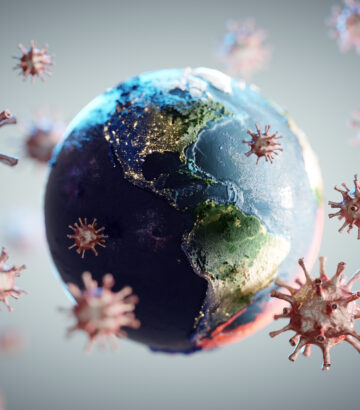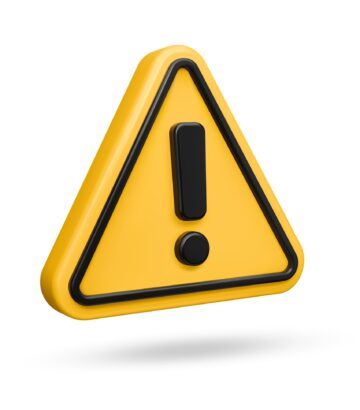WHN Statement on Attacks on the CDC and Public Health
Context
This statement builds on prior WHN analyses of threats to U.S. public health institutions:
- WHN Statement on the Dismantling of U.S. Public Health Institutions (July 2025) – link
- Newsletter on Trump Administration Changes (July 2025) – link
Together with the current evidence, these documents show a consistent pattern of actions undermining science-based public health protections.
The Role of the CDC
The Centers for Disease Control and Prevention (CDC) has historically been the backbone of U.S. health security. Its programs protect Americans through surveillance, vaccination, outbreak response, and support for state and local health departments. Budget and staffing cuts, combined with major policy reversals, have now severely impaired the agency’s ability to perform these core functions.
Recent Actions that Undermine Science
- Unscientific reversals of vaccination recommendations. In May 2025, HHS announced—without transparent scientific review—that COVID-19 vaccination was no longer recommended for healthy children and pregnant people. This action is inconsistent with extensive scientific findings showing clear benefit and safety in both groups. Notably, the administration’s decision to reverse the recommendation for children under five to receive the updated vaccine ignores overwhelming evidence [1, 2] and the consensus of pediatric health experts [3]. The original recommendation was based on clinical trial data demonstrating a favorable safety profile and efficacy in preventing severe disease in this age group [1].
- Dismissal and replacement of scientific advisors. In June, all members of the CDC’s Advisory Committee on Immunization Practices (ACIP) were removed, and only partially replaced. Several new appointees hold unscientific anti-vaccine positions that contradict well-established findings, undermining the integrity of national vaccine policy. In making this change, the agency failed to convene its independent advisory committee, a key scientific safeguard for ensuring public trust [4]. Furthermore, the policy was issued without the standard notice-and-comment period required by law [5].
- Restrictive vaccine licensure contrary to evidence. In August, FDA licensing of COVID-19 boosters was limited to adults 65+ and certain medical conditions, excluding healthy children, pregnant people, healthcare workers, and adults at high exposure risk. This directly contradicts the scientific consensus that vaccination benefits these groups.
Barriers to Access and Pharmacy Restrictions
Historically, over 90% of COVID vaccinations in the U.S. were administered by pharmacists. Because pharmacists are bound by FDA licensure and state law, the new restrictions are already producing serious barriers to access:
- Pharmacy chains. Both CVS and Walgreens have stated that their pharmacists cannot administer COVID vaccines outside FDA-licensed categories without a physician’s prescription. In practice, this has already led to eligible but healthy under-65 individuals being turned away.
- State law dependency. In nearly 20 states, authority to vaccinate is tied directly to FDA licensure and CDC recommendations. In these states, pharmacists are unable to vaccinate healthy children or adults under 65 at all.
- Added burdens. Patients must now obtain prescriptions, requiring physician visits that add delays, expense, and disincentives. Many practices do not stock vaccines, further limiting access.
- Insurance uncertainty. Some insurers may deny coverage for “off-label” vaccination, forcing patients to pay out-of-pocket. Medicaid coverage will vary by state, and the Vaccines for Children program is unlikely to cover healthy children under the new licensure.
Blocking pharmacists from administering these vaccines creates a significant barrier to access. Data from previous vaccination campaigns show that pharmacies administer over one-third of all adult flu shots in the United States [6]. This access is especially critical in rural and underserved communities, where pharmacies are often the most convenient healthcare provider [7], and models predict that such restrictions will lead to measurably lower vaccination rates. These barriers are unprecedented in modern U.S. vaccination practice, creating confusion, limitations on access, and unnecessary risk.
Failure to Follow Legal and Scientific Safeguards
These changes have been made without the transparent procedures required by administrative law, including expert consultation, evidence review, and public input. Such safeguards exist precisely to ensure that health policy reflects scientific evidence rather than political preference [8]. Their abandonment undermines both the rule of law and public trust in government institutions. This pattern of behavior amounts to a weaponization of public health, undermining the public’s trust in institutions that are supposed to be non-partisan. [9, 10]
Leadership Crisis at CDC
CDC Director Susan Monarez, just weeks after Senate confirmation and days after a terrorist assault on the agency, was informed she was dismissed after refusing to approve scientifically unsubstantiated restrictions. She is contesting the dismissal.
The individual appointed as interim CDC director lacks relevant public health training, raising serious concerns about conflicts of interest and scientific competence.
Following Monarez’s removal, four senior leaders resigned, citing manipulation of evidence reviews and political interference:
- Dr. Debra Houry, Chief Science and Medical Officer
- Daniel Jernigan, Director of Emerging and Zoonotic Infectious Diseases
- Jennifer Laydon, Director of Public Health Data, Science, and Technology
- Dr. Demetre Daskalakis, Director of Immunization and Respiratory Diseases
These leaders explicitly warned that continuing under current conditions would make them complicit in the “weaponization” of public health. As Dr. Daskalakis stated: “Safety has already been compromised. We are flying blind in the U.S. already… The CDC you knew is over. Unless someone takes radical action, there is nothing there that can be salvaged.”
These resignations represent not only a profound loss of expertise, but also a warning from within that the scientific foundations of public health are being dismantled.
Medical Community Response
Major professional societies have already rejected these restrictions, reaffirming evidence-based vaccination:
- The American Academy of Pediatrics (AAP) and the Pediatric Infectious Diseases Society (PIDS) have issued guidance explicitly noting differences from CDC recommendations, and continue to support vaccination of children. [3]
- The American College of Obstetricians and Gynecologists (ACOG) has reiterated its evidence-based recommendation for vaccination in pregnancy.
- The American College of Physicians (ACP) has previously issued vaccine recommendations diverging from CDC guidance and has formally challenged the ACIP dismissals in court.
- The American College of Cardiology (ACC) issued guidance on August 26, 2025, summarizing strong evidence of vaccine benefit for adults with cardiovascular disease, directly contradicting CDC’s narrowed indications.
This broad alignment demonstrates that the scientific medical community continues to stand behind evidence-based vaccination, even when federal agencies abandon that responsibility.
WHN Calls For
- Medical professional leadership. National societies should continue to issue clear, science-based vaccination recommendations to guide clinicians, insurance companies, and the public.
- State action. State health departments and consortia should adopt vaccination protocols and ensure access regardless of federal restrictions.
- Insurance coverage. Medicaid programs and all insurers must guarantee coverage for vaccination for all enrollees, including healthy children and adults under 65.
- Institutional accountability. Public officials must follow established scientific and procedural standards. Where these standards have been violated, leadership changes are necessary to restore public trust and protect health.
Conclusion
The dismantling of science-based procedures at CDC and FDA constitutes a direct threat to U.S. health security. WHN stresses that this is not a partisan issue: it is a matter of safeguarding lives through transparent, evidence-based policy. Americans deserve institutions that protect them with science, not undermine them with ideology.
References
1. Walter, E. B., Talaat, K. R., Sabharwal, C., Gurtman, A., Lockhart, S., Paulsen, G. C., … & Swanson, K. A. (2022). Evaluation of the BNT162b2 Covid-19 Vaccine in Children 5 to 11 Years of Age. New England Journal of Medicine, 386(1), 35-46. https://www.nejm.org/doi/full/10.1056/NEJMoa2116298
2. Prasad, S., Kalafat, E., Blakeway, H., Townsend, R., O’Brien, P., Morris, E., … & Khalil, A. (2022). Systematic review and meta-analysis of the effectiveness and perinatal outcomes of COVID-19 vaccination in pregnancy. Nature Communications, 13(1), 2414. https://www.nature.com/articles/s41467-022-30052-w
3. American Academy of Pediatrics. (2024). COVID-19 Vaccine for Children. AAP.org. https://www.aap.org/en/pages/2019-novel-coronavirus-covid-19-infections/covid-19-vaccine-for-children
4. U.S. Centers for Disease Control and Prevention. (2023). Charter: Advisory Committee on Immunization Practices (ACIP). https://www.cdc.gov/vaccines/acip/committee/charter.html
5. U.S. Code. Title 5, Section 553: Rule making. Legal Information Institute, Cornell Law School. https://www.law.cornell.edu/uscode/text/5/553
6. Centers for Disease Control and Prevention. (2023). Influenza Vaccination Coverage Among Adults — United States, 2021–22 Season. Morbidity and Mortality Weekly Report, 72(39), 1057-1064. https://www.cdc.gov/mmwr/volumes/72/wr/mm7239a1.htm
7. Qato, D. M., Zenk, S., Wilder, J., Harrington, R., Gaskin, D., & Alexander, G. C. (2017). The availability of pharmacies in the United States: 2007–2015. PLoS ONE, 12(8), e0183172. https://journals.plos.org/plosone/article?id=10.1371/journal.pone.0183172
8. Sachs, J. D., Abdool Karim, S. S., Aknin, L., Allen, J., Arruda, K. et al. The Lancet COVID-19 Commission. (2022). The Lancet Commission on lessons for the future from the COVID-19 pandemic. The Lancet, 400(10359), 1224-1280. https://www.thelancet.com/journals/lancet/article/PIIS0140-6736(22)01585-9/fulltext
9. Webb RM, Kurtz L. Politics v. science: How President Trump’s war on science impacted public health and environmental regulation. Prog Mol Biol Transl Sci. 2022;188(1):65-80. https://doi.org/10.1016/bs.pmbts.2021.11.006
10. Khoury, C. (2025, August 13). From Pandemic Prep to Political Purge: Trump’s War on Public Health. Harvard Political Review. https://theharvardpoliticalreview.com/trump-public-health











